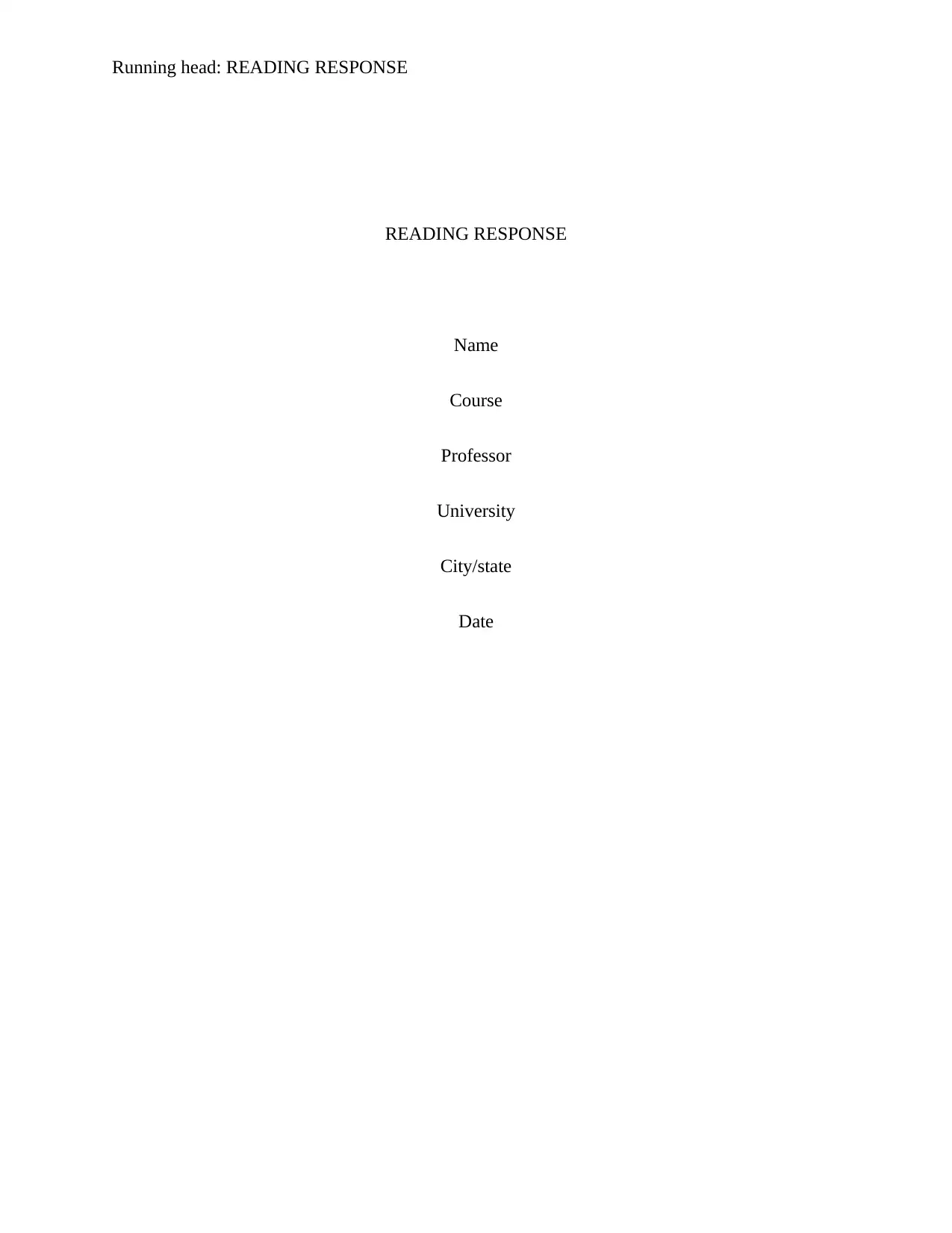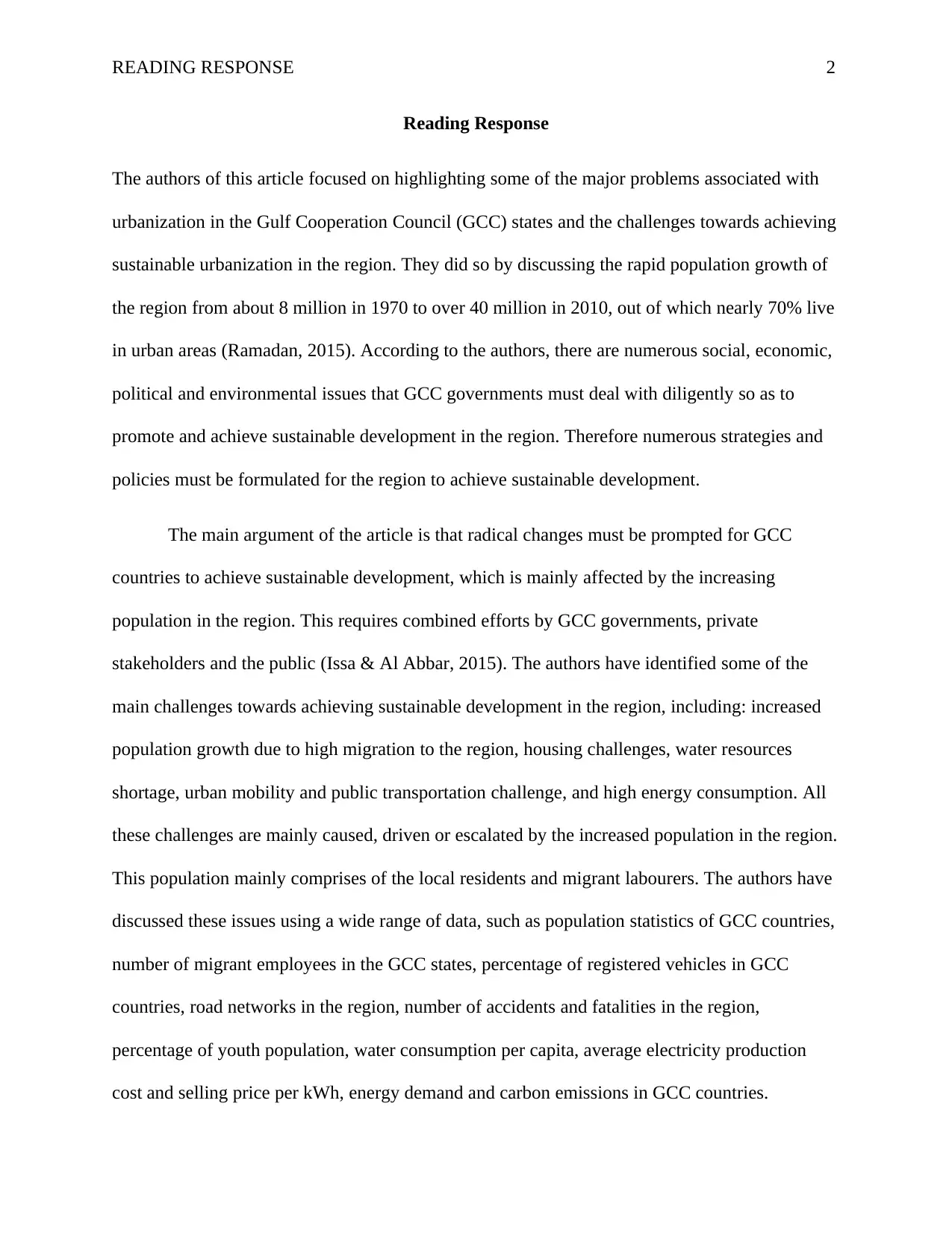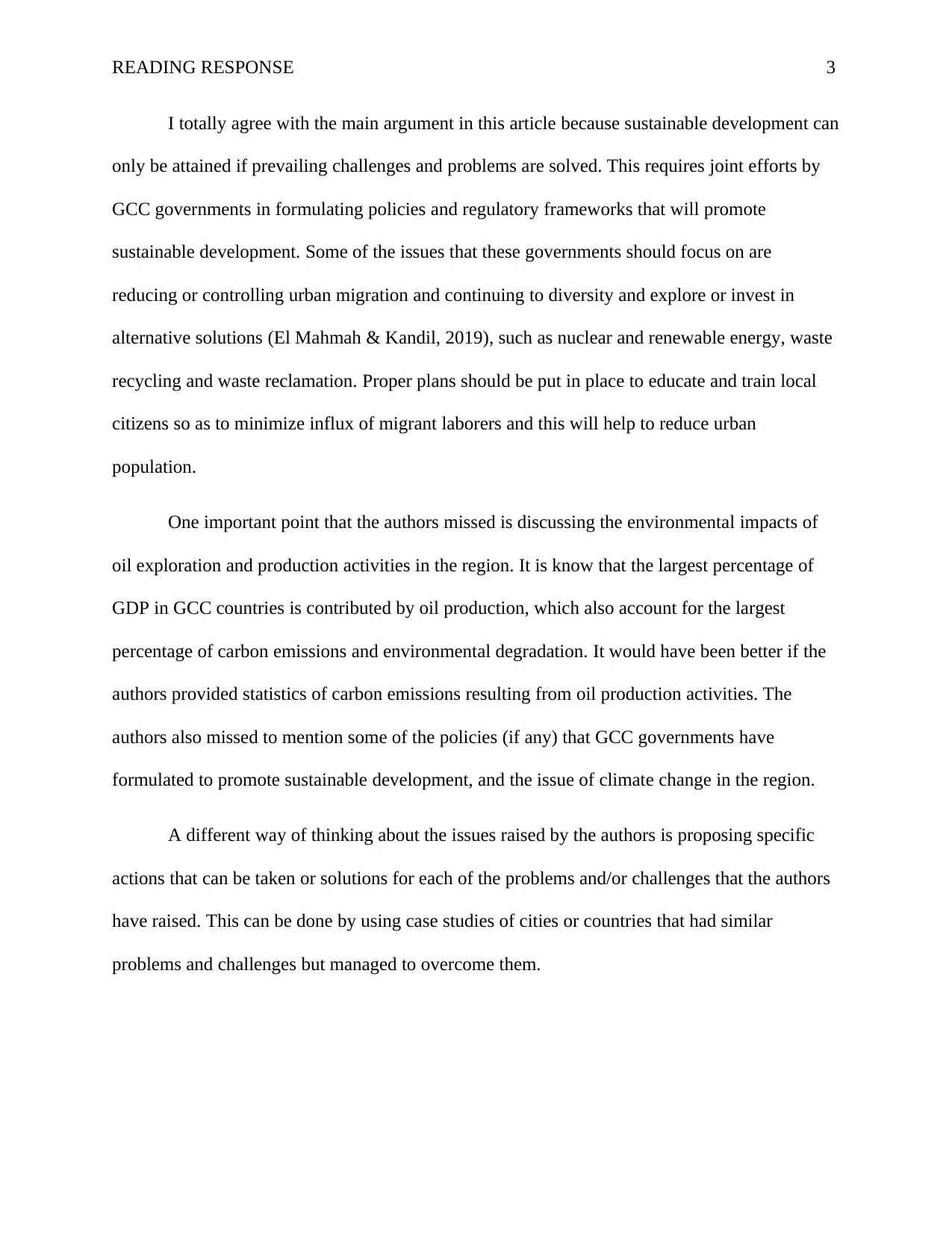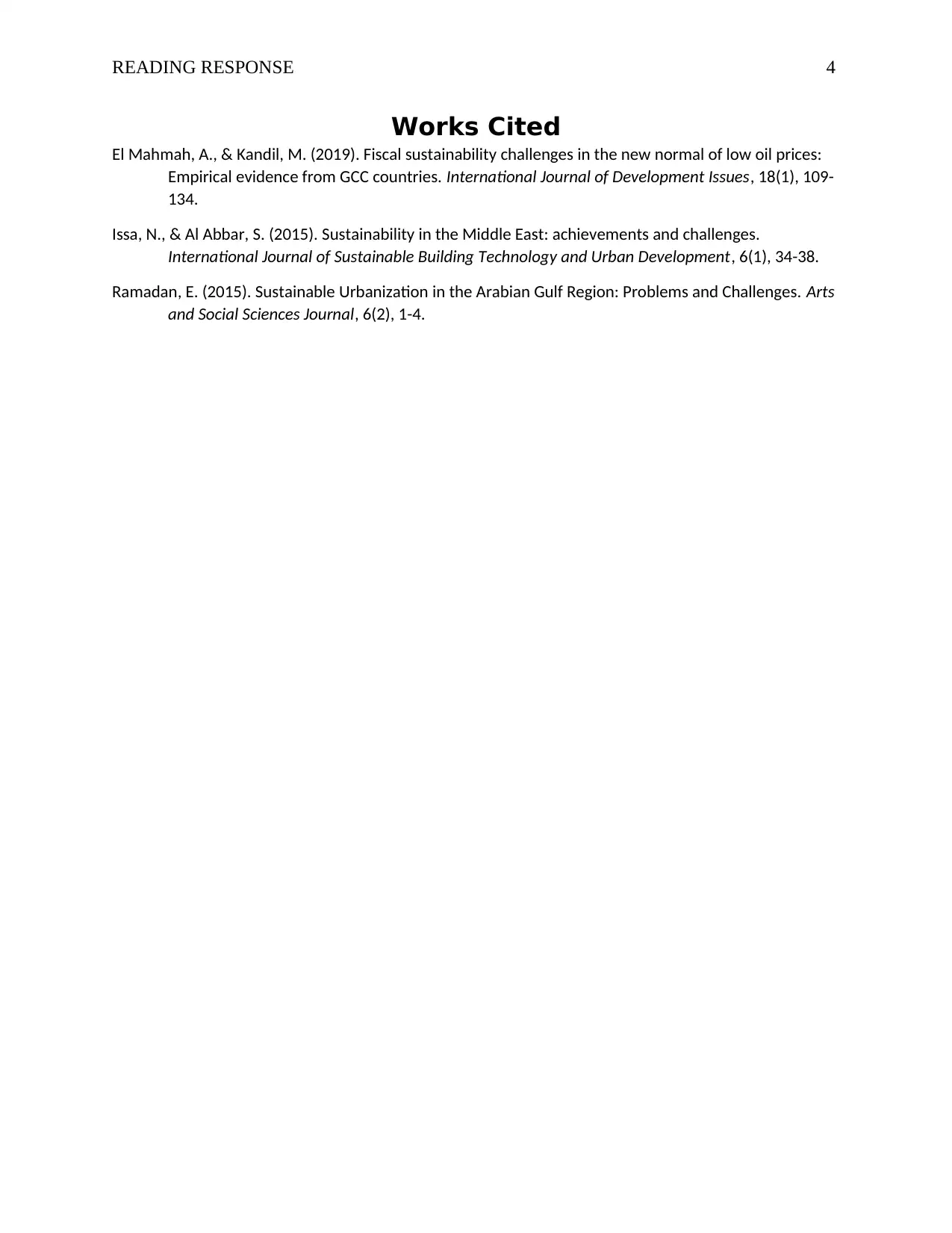Reading Response: Challenges and Solutions for GCC Urbanization (2024)
VerifiedAdded on 2023/01/18
|4
|775
|21
Report
AI Summary
This reading response analyzes an article focusing on the challenges of sustainable urbanization in the Gulf Cooperation Council (GCC) states. The author highlights the rapid population growth, primarily in urban areas, and the associated social, economic, political, and environmental issues. The report emphasizes the need for combined efforts from GCC governments, private stakeholders, and the public to address challenges such as population growth, housing shortages, water scarcity, urban mobility issues, and high energy consumption. The response agrees with the main argument, advocating for policy changes, diversification, and investments in alternative solutions. It also suggests that the article could have included discussion on the environmental impacts of oil production and specific policy examples. The response suggests considering case studies of cities or countries that have overcome similar challenges.
1 out of 4










![[object Object]](/_next/static/media/star-bottom.7253800d.svg)